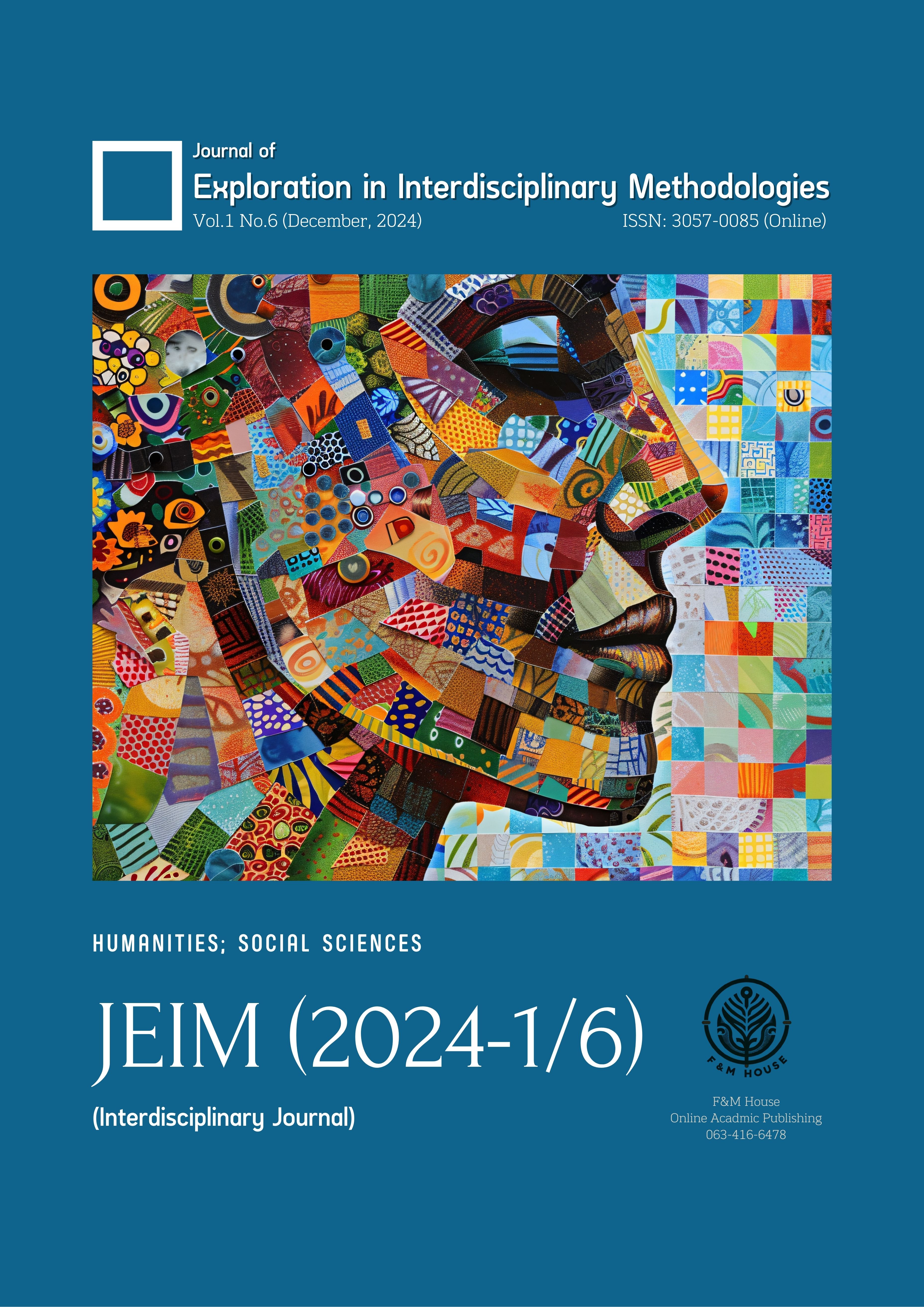Adolescent Anxiety and Social Media: A Psychological Analysis of Youth Behavior in Thailand
คำสำคัญ:
Adolescent Anxiety, Social Media, Thai Youth, Psychological Impact, Cyberbullyingบทคัดย่อ
The pervasive use of social media has significantly impacted the mental health of adolescents in Thailand, with a noticeable link to heightened anxiety levels. This study explores the psychological effects of social media on Thai youth, focusing on factors such as social comparison, cyberbullying, and addiction. Using psychological theories like Social Comparison Theory and Uses and Gratifications Theory, the research highlights how online interactions amplify feelings of inadequacy and fear of missing out (FOMO), contributing to anxiety. The cultural context of Thailand, which emphasizes collectivism and community ties, exacerbates the pressures faced by adolescents navigating traditional expectations alongside modern digital influences. While social media offers avenues for connection and support, its overuse can disrupt mental well-being, underscoring the need for comprehensive strategies to foster healthier online behaviors. This analysis provides valuable insights for educators, mental health professionals, and policymakers to develop interventions aimed at mitigating the adverse effects of social media on adolescent mental health.
เอกสารอ้างอิง
Boyd, D. (2014). It’s complicated: The social lives of networked teens. Yale University Press. http://books.google.com/books?id=p9u8AgAAQBAJ&source=gbs_api
Dhammathattariya, P., Songkram, N., Visessuvanapoom, P., & Piromsopa, K. (2022). Factors influencing social media addiction among high school students in Thailand: An exploratory factor analysis. Global Community and Cyber Youth Journal, 5(2040), 37–43. https://www.gccy.org/wp-content/uploads/2022/02/5-2040.pdf
Hodes, M., Shur-Fen Gau, S., & De Vries, P. J. (2018). Understanding uniqueness and diversity in child and adolescent mental health. Academic Press. https://play.google.com/store/books/details?id=l11gDwAAQBAJ&source=gbs_api
Huberty, T. J. (2012). Anxiety and depression in children and adolescents: Assessment, intervention, and prevention. Springer Science & Business Media. https://play.google.com/store/books/details?id=CgXEwxokauEC&source=gbs_api
Hung Phu Bui, Mark Bedoya Ulla, Veronico N. Tarrayo, Chien Thang Pham (2023-10-24). The Roles of Social Media in Education: Affective, Behavioral, and Cognitive Dimensions. Frontiers Media SA. http://books.google.com/books?id=nrPeEAAAQBAJ&dq=Adolescent+anxiety+social+media+self-esteem+impact+youth+behavior+Thailand&hl=&source=gbs_api
Liamputtong, P. (2014). Contemporary socio-cultural and political perspectives in Thailand. Springer Science & Business Media. https://play.google.com/store/books/details?id=ms3HBAAAQBAJ&source=gbs_api
Li, Y., Mu, W., Xie, X., & Kwok, S. (2023). Network analysis of internet gaming disorder, problematic social media use, problematic smartphone use, psychological distress, and meaning in life among adolescents. Semantics Scholar, 9. https://www.semanticscholar.org/paper/87ae97fa8dc3a1c05d6fae7ffed270312cba496f
Nadarajan, S. (2023). Internet addiction among undergraduate university students: A structural equation model. Burapha University. https://digital_collect.lib.buu.ac.th/dcms/files/63810053.pdf
Nguyen, M. T., & Nguyen, P. T. (2023). Solutions for mental health issues in Vietnamese adolescents. International Journal of Latest Research in Humanities and Social Science (IJLRHSS), 6(10), 155–165. www.ijlrhss.com
Omar, N. E., & Abdullah, M. N. (2020). Memahami kehidupan serta impak Covid-19 terhadap generasi Y dan Z. Institut Penyelidikan Pembangunan Belia Malaysia, 22, 5–15. http://www.iyres.gov.my/images/penerbitan/(Vol.22)%20MJYS%202020.pdf#page=89
Passanisi, J. (2024). Chaos to context: Understanding adolescent behavior in the digital age. Taylor & Francis. https://play.google.com/store/books/details?id=q6YtEQAAQBAJ&source=gbs_api
Pham, N. C. A., Nguyen, D. H., & Nguyen, T. H. A. (2023). Studying the influence of using social networks on high school students through an overview of research in some countries and Vietnam. International Journal of Social Science and Economic Research, 8(10), 3041–3044. https://doi.org/10.46609/IJSSER.2023.v08i10.002
Permana, I., & Susanti, H. (2024). Adolescence mental health in school and university. Frontiers Media SA. http://books.google.com/books?id=T7sWEQAAQBAJ&source=gbs_api
Saleem, S. M., & Jan, S. (2024). A cross-sectional study of mental health effects of excessive screen time and social media use among Indian adolescents and young adults. Semantics Scholar. https://www.semanticscholar.org/paper/eb984bd00fca990794b1fac9ae5ad982a07256b1
Siemieniecka, D. A., & Jarczyńska, J. (2023). Relationship between social media use and adolescent mental health – A systematic review. International Journal of Pedagogy Innovation and New Technologies, 10(1), 42–63. https://bibliotekanauki.pl/articles/45149339.pdf
Sukumal, P. (2024). Assessing learning outcomes in Thai secondary schools: A comparative study of traditional and alternative evaluation methods. Mahachulalongkornrajavidyalaya University.
Teh, J., & Che Amat, M. A. (2024). Influence of social media, counseling help-seeking attitudes, and cyberbullying engagement among young adults in Selangor, Malaysia. SEAAIR Secretariat, 22(1), 253–274. http://www.seaairweb.info/journal/index.aspx
Tidake, V. M., Das, U., Bhatti, K. K., Gudipati, R. S., Farhad, S., El-Ebiary, Y. A. B., & Rengarajan, M. (2024). Vocational education skill assessment and intelligent assistance: A study on the application of machine learning algorithms in the assessment of vocational information literacy teaching ability. Little Lion Scientific, 102(13), 5237–5238. www.jatit.org
Tienthavorn, T. (2023). An exploration of simulation-based medical education (SBME) innovation through the COVID-19 pandemic: A comparative case study of two medical schools (Scotland and Thailand). University of Dundee. https://discovery.dundee.ac.uk/ws/portalfiles/portal/107001595/An-exploration-of-Simulation-Based-Medical-Education-SBME-innovation-through-the-COVID-19-pandemic_Redacted.pdf
Weng, F. (2023). The impact of social engagement, social support, and self-esteem on life satisfaction in UK youth: A sequential explanatory mixed methods study. Semantics Scholar. https://www.semanticscholar.org/paper/d97c956a56333702b759475914abb964fac076f0
White, J. (2015). Digital literacy skills for FE teachers. Learning Matters. https://play.google.com/store/books/details?id=0djSAwAAQBAJ&source=gbs_api
Wilgus, K. (2015). Feeding the mouth that bites you. CreateSpace. http://books.google.com/books?id=qpQjswEACAAJ&source=gbs_api
Wong, R. (2022). What do they actually need? An investigation of English learning motivation of underprivileged students. Canadian Center of Science and Education, 15(11), 1–14. https://epe.lac-bac.gc.ca/100/201/300/english_language_teaching/2022/ELT2022-V15N11-ALL.pdf#page=73
Young Lee, Judy Blebea, Furhut Janssen, S. Domoff (2023). The Impact of Smartphone and Social Media Use on Adolescent Sleep Quality and Mental Health during the COVID-19 Pandemic. https://www.semanticscholar.org/paper/6b8bfad8da493cb6d2d2596331cc9c6a8c684e3a
Young, K. S., & Nabuco De Abreu, C. (2017). Internet addiction in children and adolescents. Springer Publishing Company. https://play.google.com/store/books/details?id=EFICDgAAQBAJ&source=gbs_api
Zabrodskaja, A., & Dakanalis, A. (2024). Highlights in psychology: Social anxiety. Frontiers Media SA. http://books.google.com/books?id=Ja0FEQAAQBAJ&source=gbs_api
Zhai, T., & Gao, L. (2023). Mental health management and strategies for adolescents: A modern approach. Youth Development Journal. https://www.youthmentalhealth.org/article/zhai-gao-2023
Zhao, M. Y., & Huo, S. (2023). Removing language barriers in learning assessments. UNESCO Bangkok Office. https://neqmap.bangkok.unesco.org/thematic-review







